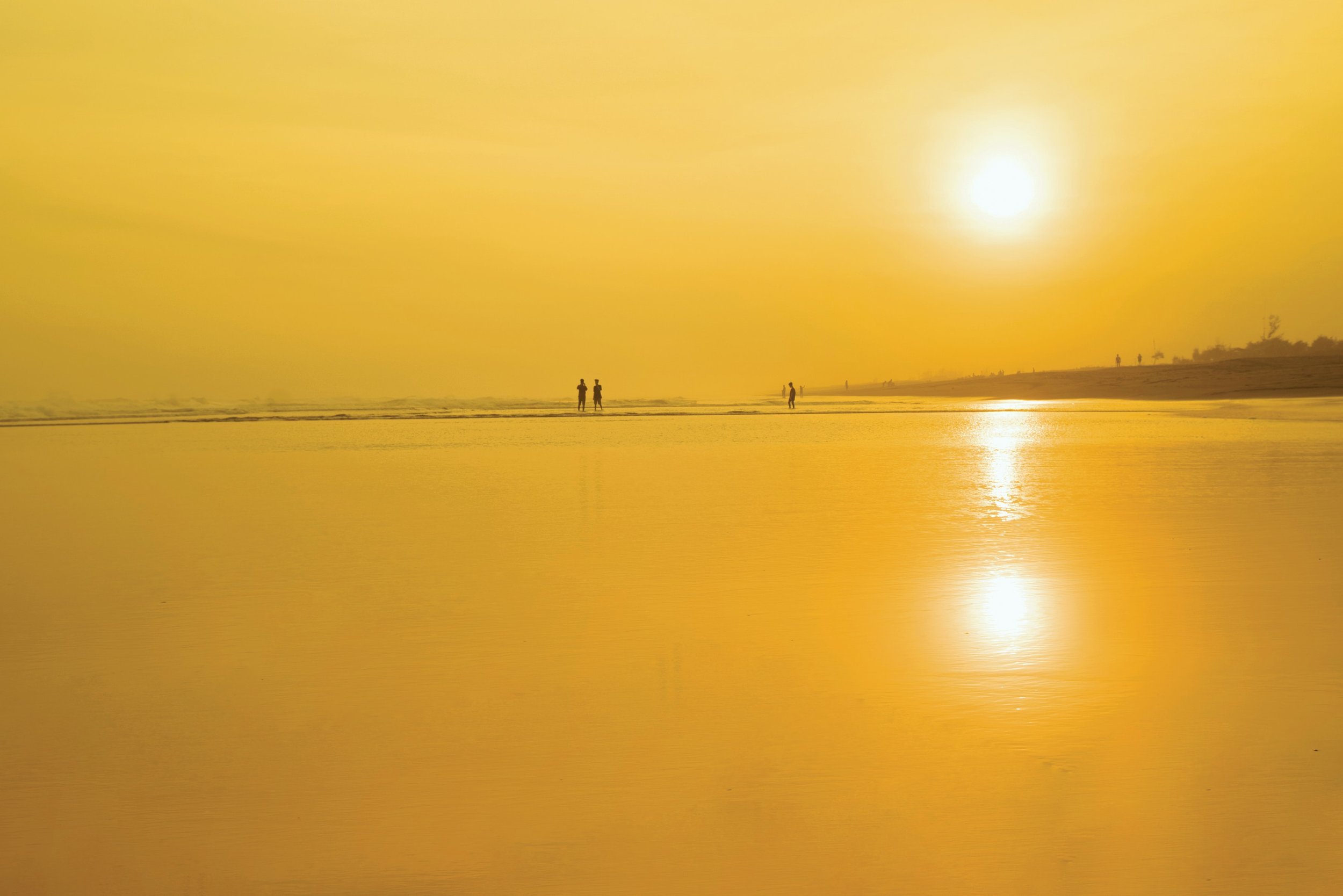Out Of Sight
“After the succession of nurses,/the anaesthetist, who was all business;/more drops, more stinging, more/numbing to be grateful for, a cannula/in my left arm. Then he approached with a felt tip pen, and announced/“Now I’m going to draw on your eye!”/My eye had to flick left, right,/up, down - his uneasy, shifting canvas.”
Poet and literary scholar, Dennis Haskell, examines a crucial sense. He drifts into a yellow haze and reports lucidly from a world of unseeing.
By Dennis Haskell & PEN Perth
Photo: Bayu Syaits/Unsplash
Out of Sight
with gratitude to Dr Olivia MacVie
Shifting steadily across the sky, banisher
of darkness and begetter of warmth,
Old Sol was for so long a God, a
golden guinea above us; now a friend
we could not live without
but only at a Goldilocks distance
from its explosive ferocity.
Years
of seering air had turned my eye
to the sun’s own yellow, and so,
starvation and thirst from early morning
to the Eye Hospital I had to go. It’s true
the cataract haunted me like a passion.
To get in required a temperature check,
papers, and Covid questions, then waiting time
in a windowless place, all its light
artificial. Nurses, all my possessions
disappeared, questions, which would return
again and again, name and birthdate
like a chant. Then I was led away
in a sunless, timeless world
to an optometrist; my chin on a stirrup,
she moved a camera back and forth
to my unphotogenic eye: blink,
stretch it wide, hold, starkly,
my jaw contorted
before circles of stunning white light.
Gradually moved into the inner sanctum
as if into a séance, into mystery,
I became begowned and hair-capped;
pleasant nurses, drops after drops
into my eye: some stung,
some partly numbed the poor thing.
After the succession of nurses,
the anaesthetist, who was all business;
more drops, more stinging, more
numbing to be grateful for, a cannula
in my left arm. Then he approached
with a felt tip pen, and announced
“Now I’m going to draw on your eye!”
My eye had to flick left, right,
up, down - his uneasy, shifting canvas.
Finally, some “relaxant” flowed into my arm,
my chair went flat; my head on a jelly pillow,
I was wheeled away, into the dark
where my ophthalmologist suddenly appeared
and leaned over me, pulled down
a periscope-like light, and covered me
with mesh, all but a square for my oval eye.
I had read what she would do: nick my eye,
suck out the sun-coloured cataract
and drop in a new, clear bionic one
angled to the lines on my sketchy eye:
splotches of shifting red, blue
swam before me; but I hardly felt
the whole thing. It was over
before I really knew, and I was quickly
wheeled out to sit up with biscuits and tea.
That night it was a scratchy, watery eye,
the next day simply blinding light;
I had to wear sunglasses everywhere,
somewhere between Joe Cool and the Cyclops.
But healing had begun; my ophthalmologist
says she’s “just a technician” – it’s all science;
now clear-eyed, to me it’s a form of magic
almost as stunning as our accidental sun.
Photo: Simon Berger/Unsplash


